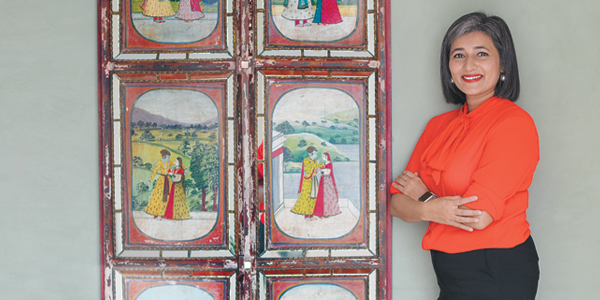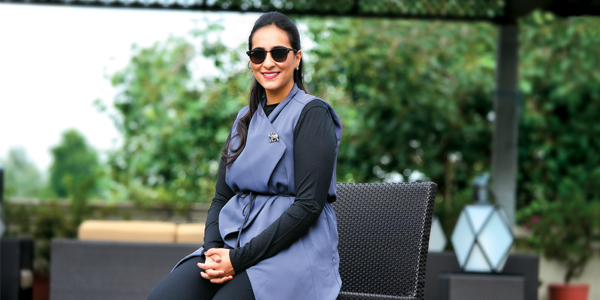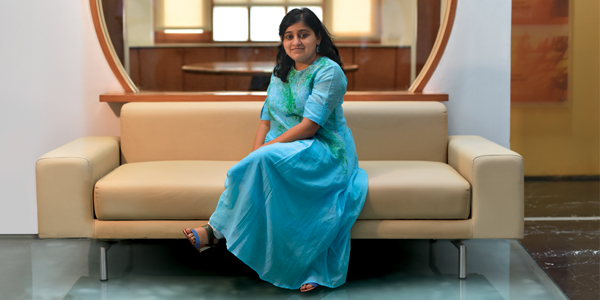She scaled Kolkata’s beloved Rollick to a Rs.500 million empire, but still loves selling ice-cream by hand: Meet Anisha Aggarwal
Anisha Aggarwal inherited a dream — an ice cream business — and she took it to the corners of east India with constant and tireless innovation
Anybody who was friends with ‘the ice cream girl’ of Loreto House was in for a treat. At lunch break, her friends would flock together at the Rollick ice cream cart on the school grounds, and a young Anisha Aggarwal would be dishing out scoops to all. “At that time, I did not know how a business worked. Only now, when I think about it, do I realise that obviously, somebody was paying for it,” says the 33-year-old director of the ice cream company.
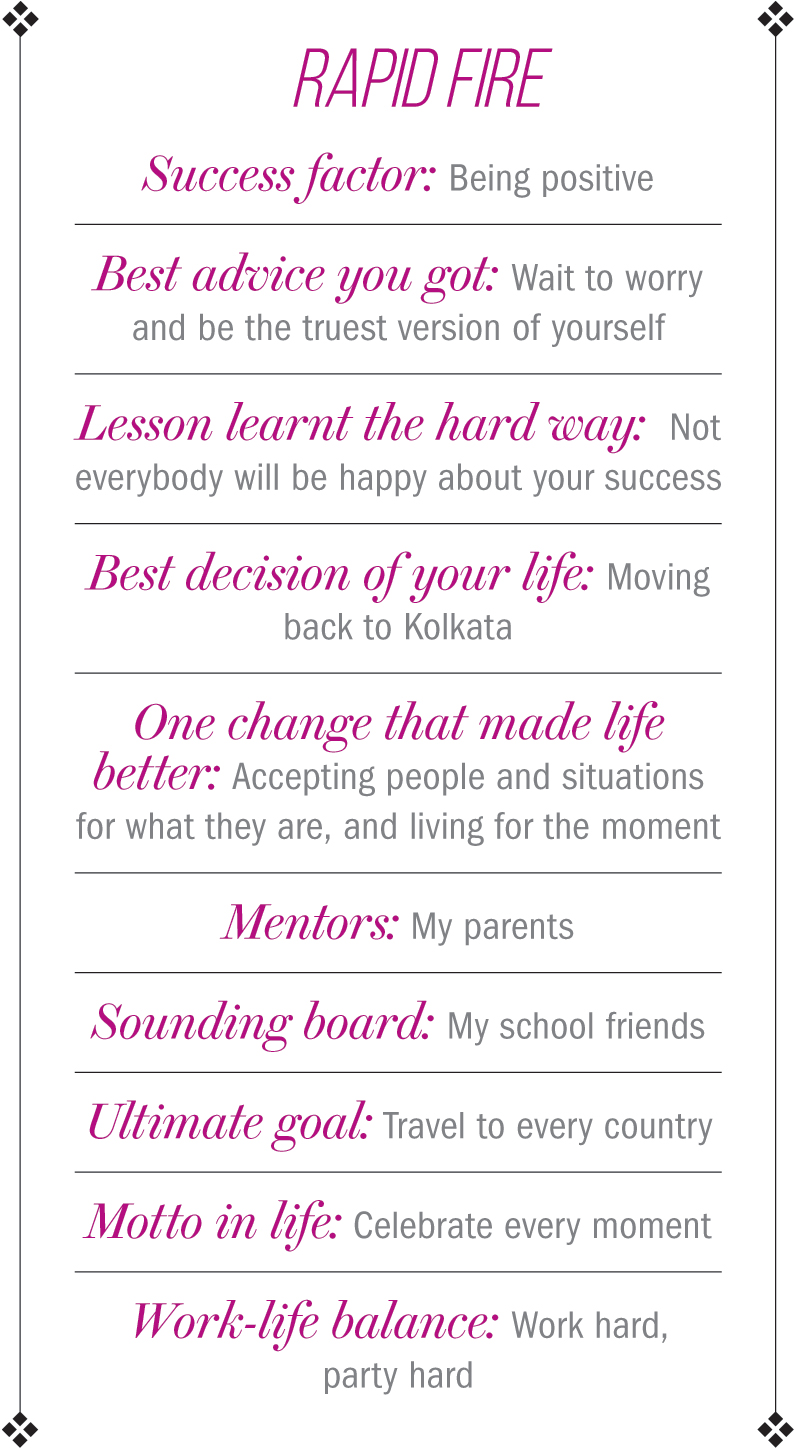 She tells us many times over in our conversation, that the ice cream story was drilled into Aggarwal and her sister Natasha from a very early age. Started in 1989 by their father SS Aggarwal, the company’s first ice cream parlour introduced Kolkata to the popular hot chocolate fudge and banana split. One can only imagine the perks of growing up in an ‘ice cream family’. There was definitely a giant freezer at home and dinner table conversations were a game of ‘guess the flavour.’ Other times, Aggarwal would help her mother out at the ice cream parlour from behind the cash counter. Summer holidays around the world included the mandatory visit to the supermarket to make a note of international trends and what other ice cream companies were doing.
She tells us many times over in our conversation, that the ice cream story was drilled into Aggarwal and her sister Natasha from a very early age. Started in 1989 by their father SS Aggarwal, the company’s first ice cream parlour introduced Kolkata to the popular hot chocolate fudge and banana split. One can only imagine the perks of growing up in an ‘ice cream family’. There was definitely a giant freezer at home and dinner table conversations were a game of ‘guess the flavour.’ Other times, Aggarwal would help her mother out at the ice cream parlour from behind the cash counter. Summer holidays around the world included the mandatory visit to the supermarket to make a note of international trends and what other ice cream companies were doing.
Then, there were serious responsibilities of being introduced to the business. In her teenage, a few summer holidays were also spent working at the office with her father or helping out at the parlour by selling ice creams and earning her pocket money. While her friends would be out shopping or having lunch, Aggarwal remembers often having to say ‘no’ to weekday lunch or movie plans. “That was hard for me and sometimes I would feel that that’s not fair,” she adds. In fact, she was always expected to be at work at 9 am by her father, no matter what time she would get home the night before. Despite it all, Aggarwal is grateful for her upbringing which has influenced who she is today.
The ice cream-tasting tradition continued while Aggarwal was studying at Lancaster University in the UK. Her father would visit her at the university every holiday, and together, they would visit shops to try their ice cream or walk down the streets to taste the local flavours. “Sometimes, we would go to an ice cream factory in the UK or hop on a train to a new place and explore the ice cream parlours in the area,” she adds. The father-daughter duo would buy bags and bags of ice cream from the supermarket, taste them and bring back the wrappers to India to inspire the Rollick team back home.
When Aggarwal began applying for jobs in the UK at the end of her MBA, she remembers having the talk with her father about moving back to India and taking on the mantel at Rollick. “I always had the sense that I would return and join the family business. I had seen my parents work hard throughout my childhood, so it was natural for me to come back and take the brand forward,” she says.
When Aggarwal returned to India in 2007, she thought she would take some time off before joining the business — but oh, was she wrong. Some things never change, and as always, Aggarwal was expected to be at work at 9 am sharp the next day.
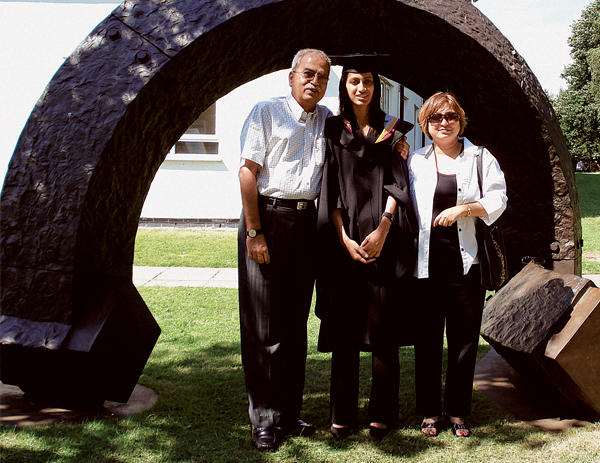
Aggarwal remembers her father’s words, told to her on her first day at work: “This (business) is yours now, do it your way. The profit is yours and the loss is mine.” However, Aggarwal, who was 22 then, would have to learn the tricks of the trade herself — he wouldn’t handhold her through the process.
From the boss’ daughter to being the boss was a challenge for both Aggarwal and the team, as well. “They had seen me as a child roaming around the office; I grew up before their eyes. It took a while for both the team and me to learn each other’s ways. But, I believe, at some point, your work commands respect of its own,” she explains.
Hands-On Boss
No task is too small for Aggarwal. From making ice cream sticks and tasting products on the factory floor to visiting shopkeepers in distant villages, she does it all. One time, she was left stunned when a crowd had gathered around her during a town visit, because the locals were not accustomed to seeing a woman stepping out of a car, and dressed in office attire.
Aggarwal points out that since West Bengal is famous for sweets, a lot of ice cream flavours are based on traditional Bengali sweets: meetha paan, nolen gur, daab malai and rabdi. There are also street food-inspired ones such as ice cream puchka and international trends-inspired ones such as ice cream tacos.
She has seen the company transform over the eleven years. Back then, chocobars used to be made by hand. So, they bought a machine that made 3,000 pieces an hour, and today, a new machine produces about 17,000 chocobars in the same duration. In all, today the company produces 80,000 litres of ice cream per day and 78,000 pieces per hour.
Rollick, which was then present in only West Bengal and Jharkhand, is now available across 15 states including Northeast India, Chattisgarh, Odisha, Bihar, and Bhutan. Aggarwal says, “Our lowest price point is Rs.5 — we believe in spreading happiness so that everyone can afford a bite of joy. We live for this and that is what drives me to go to work every morning.” With more than 400 distributors and eight ice cream parlours in Kolkata, Rollick clocked Rs.500 million in 2017-18.
Aggarwal moved to Dubai in 2014 after her marriage and was managing the business remotely. Rollick’s sales had begun to fall and her father proposed selling the business. Aggarwal’s husband Gaurav Khemani, who was considering starting a business of his own, offered to buy into Rollick. “As a daughter, it was a good feeling to keep the business in the family because I know that my father would have felt bad to sell it to somebody else,” she says. The couple moved back to Kolkata in 2016.
“My parents have always taught me to stay positive in every situation,” Aggarwal says. If things don’t go as planned, she tries to do what is possible.
One Durga Puja, ice cream machines at the factory broke down and no one could figure out how to fix them. Aggarwal spent all night at the factory, making chocobars by hand with her team. Another time, amidst a labour strike when the factory was closed for a whole week, Aggarwal still went to work with her entire team to make ice cream by hand and keep the production running. “Those were challenging moments, but also fun. When you and your team are deeply involved, there is an extra burst of energy,” she says.
This team player says that the hardest part of the job is firing an employee. For many years, she urged her father to do the “dirty work”. But now she has come to realise that it’s nothing personal. “You’re doing it in the best interest of the business. I have become better at this now,” she says.
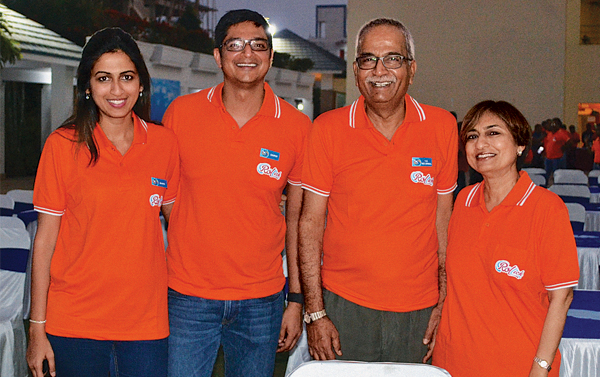
Even today, during Durga Puja, Christmas and New Year’s Eve, one can easily spot Aggarwal at the Park Street parlour, making bills and selling ice cream to customers till 4 am — something she has seen her mother do. “I do this not because I have to but because I want to be a part of the joy,” she says. Aggarwal has come to take pride in every milestone, like the time Rollick put up 10 stalls at Eden Gardens during a cricket match. During the interval, the entire audience had gathered at their stalls to eat ice creams. “I felt like a bus conductor, having a bunch of ten-rupee notes held between my fingers and distributing the change,” she says.
Aggarwal has come a long way from when she had to be coaxed to attend trade exhibitions at Thailand and Singapore. “Our father would bribe us, my sister and me, with one whole day of shopping for attending the fair for a day,” she says with a chuckle.
Her father does not interfere with the business today, but he is still her guide. “Earlier, whenever there would be any problem, I would say, ‘Dad, let’s go out for dinner.’ He would instantly know that I have something to talk about.” Her husband too is a big support, pushing her to reach greater heights and being a sounding board both at work and home.
Until recently, Aggarwal was the only woman in the office and was often mistaken as the receptionist. People delivered couriers and bills to her, expecting her to pass it on to the ‘real bosses’. But, this is changing now, she says. Growing up with a sister, the siblings were often asked if they wished they had a brother. Today, she has a firm answer to this, “I am so proud to take this brand forward as a daughter.”









